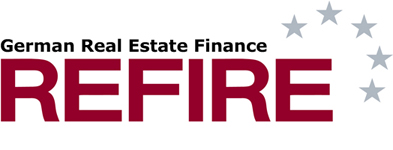
Union Investment
Union Investment
Union Investment’s Investment Climate Index was launched in 2005, and has been carried out without interruption at six-monthly intervals since 2008.
Clearer evidence is emerging of how European investors, with British groups to the fore, are accepting more risk in a low interest rate environment, against a background of relentless demand for secure real estate investments, according to German fund heavyweight Union Investment.
The Hamburg-based Union Investment, in its latest investment climate study, said the current low-interest rate environment was “more and more strongly influencing investment decisions by European institutions”. As demand for core assets increases, they grow more expensive and difficult to find, which forces investors to look for alternatives.
The survey covered the investment plans of 168 decision-makers in Germany, France and the UK. The top line response was that only 6% of companies responding saw their overall situation as being worse than this time last year. Asked about their prospects for 2014, about 95% of the UK and German respondents saw a clear upward trend ahead; only 78% of the French respondents agreed.
Overall, the study shows that nearly 66% of UK decision-makers now accept greater risk to generate “adequate returns”. The French are also moving in the same direction, with 44% regarding returns as the most important investment factor, as opposed to only 20% six months ago. In Germany, although competition for investment properties in the core segment is bringing attention to riskier higher yielding investments, the country’s investors continue to regard returns and safety as equally important.
Interestingly, both German and UK investors expressed a wish for shorter lease agreements as part of the higher risk trade-off, although their French counterparts said they equally valued shorter leases and project developments when it came to finding alternatives to core properties.
German investors showed a disinclination to go into project development, and currently prefer to put less weight on sustainability criteria in investments, or would even accept a lower quality of building substance. A clear preference was also expressed for multi-tenant buildings rather than assets with just one tenant, as a step to minimise cluster risk, respondents indicated.
The survey respondents also expect sovereign wealth funds from Asia and the Middle East to play a major role in European commercial property markets. “If investors from Asia and the Middle East were to significantly boost their positions in European real estate markets, competition will become even more intense,” said Reinhard Kutscher, chairman of Union Investment Real Estate. “European investors will be under even more pressure to adopt alternative investment strategies.”
